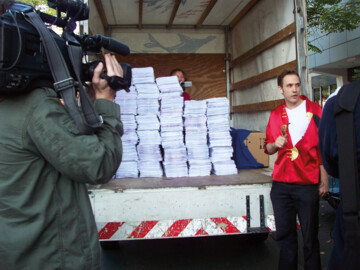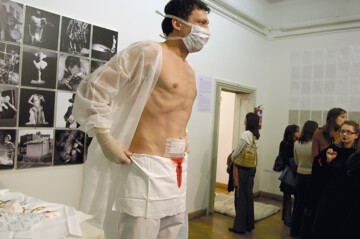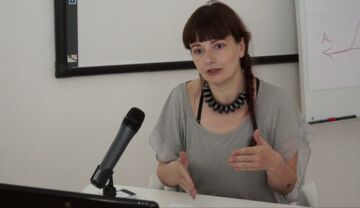The art of stealing
Tags: digital piracy, theft, common goods, regulation of the commons, artistic hacking, hacktivism, open licencing, copy-left, creative commons.
The artists fighting for the right to share, distribut and experience cultural contents outside the boundaries of local economies, politics, or laws is not limited to the present day. The arguments, which condemn the existing copyright laws as opposing the idea of the commons, are as old as Marx’s argument on the Theft of Wood, and Working-Class Composition. The argument states that in the case of claiming ownership over fallen trees the law is nullified, when applied to the exclusive advantage of particular interests of an isolated group. This means that the interest of the public is transformed into private compensation. By applying the category of theft where it ought not to be applied one exonerates it. The call of various initiatives in the copy-left movement with hactivists and artist alike follows this argument. The piracy and theft is not an act of violence but rather an act of kindness, it is aimed at promoting the allowance of cultural ambivalences, and it delineates from antagonisms when sharing imaterial cultural property. In these movemet initiated by activists and artists alike, the right to share and willful renounce the market value of a cultural product is to allow for collaborative i.e. collective modes of creating. The creators of open codes do not disown their work only allow for it to change, grow, enhance.
The copyright claims to protect the rights of the creators. What it does is protect the property of the rich and successful. To prove a point in the dispute of the so called collective agreement of GEMA (Gesellschaft für musikalische Aufführungs [Society for Musical Performance in Germany]), the artist Johannes Kreidler subverted the autocratic system of copyright laws in his multimedia theatre piece product placements from 2008. The question over ownership of digiatally produced artworks was also provoced by Ljubljana based radio-art collective radioCona (Brane Zorman and Irena Pivka) 88.8MHz in their 2008 Temporary Project Radio For Contemporary Arts emissions. The experiment by radioCona was rather simple and humorous. They made a field recording of singing birds, then played it on the radioCona. Before each emission they posed a question: who is the creator of this recording, and thus the property owner of the piece: the birds, the one who recorded the sound, the one who played it on the radio, or the one who was listening.





